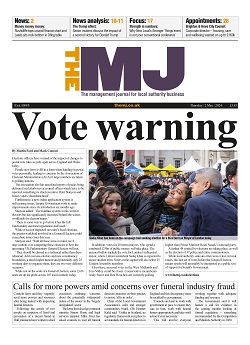The Conservatives have hit back in response to recent public sector strikes, promising to include in their 2015 election manifesto measures to ‘toughen up’ current strike laws. However, unions argue that such that a ‘clamp-down’ is both unnecessary and unfair.
Under current rules, for a strike to be lawful, unions must secure majority support of voters in a properly organised ballot and numerous stringent procedural requirements must be adhered to. Otherwise the employer will have grounds to seek damages or an injunction to prevent action going ahead.
The proposals include a requirement that at least 50% of eligible union members must vote to secure a strike mandate and a 3 month time limit after the ballot for the strike action to take place, putting an end to so called ‘rolling mandates’ by which the actual walk-out may take place months or even years after a vote.
Want full article access?
Receive The MJ magazine each week and gain access to all the content on this website with a subscription.
Full website content includes additional, exclusive commentary and analysis on the issues affecting local government.
Already a subscriber? Login




